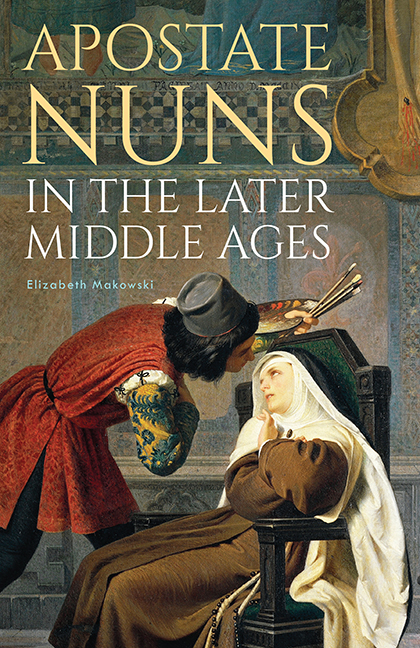Book contents
1 - Spiritual Ideal and Legal Realities
from Part I - The Vowed Life
Published online by Cambridge University Press: 18 September 2019
Summary
A clear reminder of the nexus between obligation and salvation, the Eucharistic prayer recited at every Mass is as familiar to Roman Catholics today as it would have been to their medieval counterparts. To “always and everywhere give thanks to God,” the fundamental duty of the faithful, demands actions as well as words and it is fulfilled by living a virtuous life. Salvation comes from that daily effort at fulfillment. But one's state in life, married or single, clerical or lay, naturally determines its more precise requirements.
While all believers theoretically resolve to remain faithful to God, those who marry or become professed religious do more than that; they formally assume some special obligations to Him when they enter into their chosen states. They articulate these duties by pronouncing solemn vows. These vows, in turn, add another variable to the equation of duty with salvation. Vows call upon God to witness one's intentions; they signify a resolution to act in certain ways, and they obligate individuals to carry out their proposed actions. Hence, violating a vow freely taken has moral implications that relate directly to God and not just to one's fellow men and women. In medieval Europe, there were practical, legal, and personal consequences for such violations as well. While the consequences for breaking solemn vows of religion in the late Middle Ages differed fundamentally from those imposed in the early medieval era, as well as from those that came to apply after the Council of Trent, the spiritual rationale for taking monastic vows in the first place remained surprisingly constant.
That rationale is part and parcel of a monastic ideal, born in Eastern antiquity and given concrete and lasting expression in the West by the Benedictine Rule. The Benedictine model presupposed individual perfectibility and employed vows to support the quest for personal spiritual advancement. Vows, therefore, imposed upon monastics demands that went well beyond those made of Christians generally. For example, all Christians were supposed to obey God, to dedicate their wills to his service rather than cling to the self-love that made it morally impossible for God's grace to act upon the soul. Monks and nuns, however, sought not merely to diminish self-love, but to extinguish it. They were assisted in this endeavor by the vow of obedience, through which they irrefrangibly assigned their wills to a religious superior.
- Type
- Chapter
- Information
- Apostate Nuns in the Later Middle Ages , pp. 25 - 42Publisher: Boydell & BrewerPrint publication year: 2019



